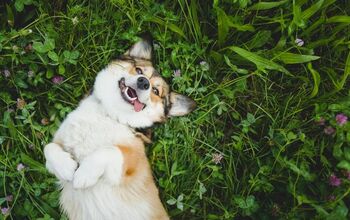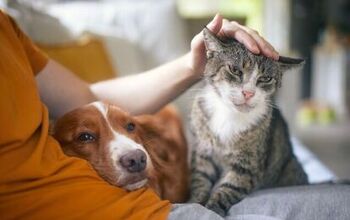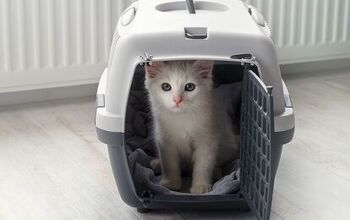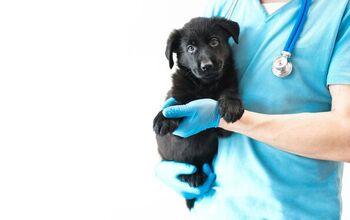Why Are Labradors Fat? Scientists Have the Answer

The friendly, playful, and trainable Labrador is one of the most popular dog breeds around the world.
But, few canines are as obsessed with food as Labrador retrievers - and now scientists think they have discovered why.
According to new research, a quarter of labs are predisposed to obesity due to a genetic mutation.
Approximately 25 percent of Labradors face a double-whammy of burning fewer calories and feeling hungry all the time because of an anomaly. Scientists explain that this obesity-causing combination means dog owners must be strict when feeding and exercising their labs to keep them fit.
The mutation is found in the gene called POMC, which plays an important role in energy use and hunger, and affects how dogs behave around food.
Around 25 percent of Labradors and 66 percent of flat-coated retrievers are affected by POMC mutation, which puts these dogs at risk of obesity and causes increased interest in food.
Researchers found that although these dogs don’t need to eat more to feel full, they are hungrier in between meals.
The study also showed that dogs with the POMC mutation use around 25 percent less energy when resting than dogs without it. As a result, these pooches don’t need to eat as many calories to maintain a healthy weight.
“We found that a mutation in the POMC gene seems to make dogs hungrier. Affected dogs tend to overeat because they get hungry between meals more quickly than dogs without the mutation,” said Dr. Eleanor Raffan, a researcher in the University of Cambridge’s Department of Physiology, Development, and Neuroscience who led the study.
“All owners of Labradors and flat-coated retrievers need to watch what they’re feeding these highly food-motivated dogs to keep them a healthy weight. But dogs with this genetic mutation face a double whammy: they not only want to eat more, but also need fewer calories because they’re not burning them off as fast,” she added.
The study found that the POMC mutation alters a pathway in dogs’ brains associated with body weight regulation. The mutated genes trigger the starvation signal that sends a message to the body to increase food intake and conserve energy.
The study involved 87 adult pet Labradors, all at a healthy weight or moderately obese. The dogs were subjected to several tests, including ‘the sausage in the box’ test.
The dogs were first given a can of wet dog food every 20 minutes until they couldn’t eat any more. All labs eat huge amounts of food, but what’s interesting is that dogs with POMC didn’t eat more food than the dogs without it.
On a different day, all dogs were given the same breakfast. Three hours later they were offered a sausage in a box made of clear plastic and a perforated lid, so the dogs could see and smell the sausage but not eat it.
Scientists discovered that labs with POMC mutation tried harder to get the sausage than the dogs without it, showing greater hunger.
In another test, the dogs were allowed to sleep in a special chamber that measured the gases they breathed out. This test showed that labs with POMC mutation burn 25 percent fewer calories than dogs without it.
According to researchers, people are often rude to owners of fat dogs, criticizing them for not feeding and exercising their dogs properly. However, this study has shown that labs with POMC are trying to increase their energy intake by looking for food all the time.
Keeping these dogs slim is challenging, but possible.
Spreading out daily food rations, by using puzzle feeders to slow down feeding or scattering the food around the yard so it takes longer to eat are ways owners can keep their Labradors distracted from constant hunger.
Join the PetGuide community. Get the latest pet news and product recommendations by subscribing to our newsletter here.

Nevena is a freelance writer and a proud mom of Teo, a 17-year-old poodle, and Bob, a rescued grey tabby cat. Since childhood, she had a habit of picking up strays and bringing them home (luckily, her parents didn't know how to say NO). When she's not writing for her fellow pet parents, Nevena can be found watching Teo sleep. To her defense, that's not as creepy as it sounds!
More by Nevena Nacic























